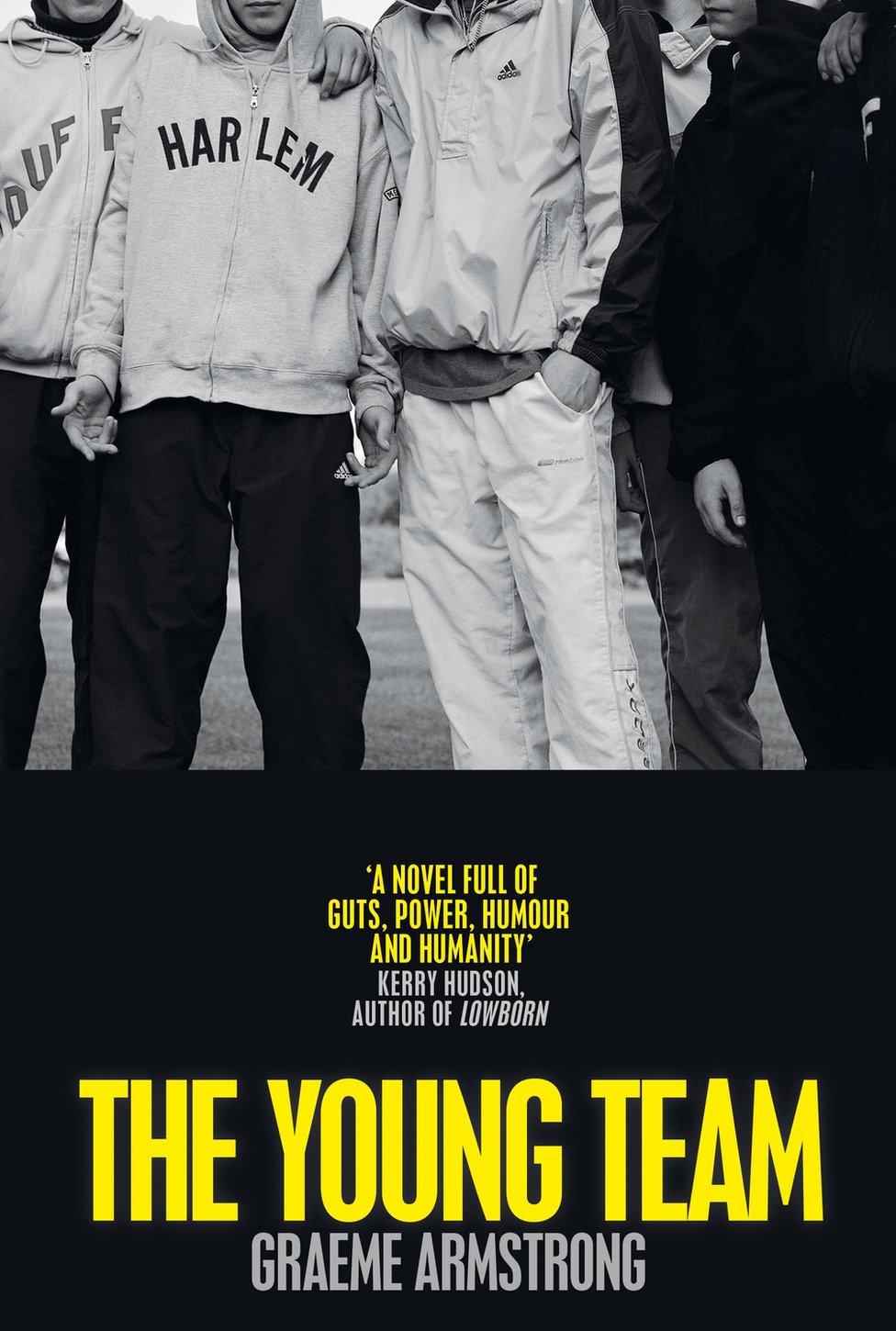Graeme Armstrong: From 'young team' gang member to acclaimed author
- Published

Gang culture in Airdrie and Coatbridge was often extremely violent, according to author Graeme Armstrong
By the time Graeme Armstrong reached the age of 14, he was a major player in North Lanarkshire gang culture.
He had graduated from smoking and drinking to harder drugs before turning his life around and getting a university degree.
At the age of 28, he wants his experiences to prevent other young men travelling down the same destructive path.
The former addict is now a published author whose first novel has been given the endorsement of Scotland's first minister.
The 'young team'
Armstrong grew up in Airdrie. Aged 12, he was asked by a friend if he'd heard of the "young team".
Believing it was a football team, he asked: "Where do they play, down the bottom park?"
In fact, the young team was a gang and it's also the title of Armstrong's first book - a fictional, but inspired-by-fact tale of a young boy embroiled in a gang in Scotland's industrial heartland.

Author Graeme Armstrong's book, Young Team, is fiction but is influenced by his own experience
Written in local dialect, it follows the gritty exploits of Azzy Williams through his eyes at ages 14, 17 and 21.
Azzy is "ready to smoke, pop pills, drink wine and ready to fight".
Armstrong says it leans heavily on real life.
He told BBC Radio Scotland's Drivetime with John Beattie: "I discovered the young team and within a couple of years I was one of the most prominent members of that gang and embroiled in a world of violence and drug and alcohol abuse."
He said that at the age of 14 the lifestyle seemed glamorous. But that did not last long.
'She prayed for me'
He said: "When you are that age you have no idea about mental health or the storm that's coming inevitably. You are chasing the buzz and there's a pack mentality."
The gang involvement led to extreme violence, and he regrets the effects on his family.
He said: "My mother used to say that she prayed for me every night when I left the house on a Friday because she just didn't know if I would come home.
"Be that by someone else's hand or by me consuming drink and drugs and I think that remorse for that is something that will live on with me. I detracted from the enjoyment of her life, it added years to her, and that's the reality to all this stuff."
Allow X content?
This article contains content provided by X. We ask for your permission before anything is loaded, as they may be using cookies and other technologies. You may want to read X’s cookie policy, external and privacy policy, external before accepting. To view this content choose ‘accept and continue’.

At 16, Armstrong was inspired by Irvine Welsh's Trainspotting to begin writing and studying English.
He left drugs, alcohol and violence behind for a degree in English at Stirling University and a Masters in creative writing.
But he added that getting an education was not a fairytale ending.
He said: "I left where I was from at 18, to go and pursue my university degree and I would love to tell you that that was the fairytale ending that my family had hoped it would be.
"But I was still a drug addict, I was still dealing with trauma and that violence was still to come. Even though I was past violence, that legacy I left came back to bite me.
"Unfortunately if you've got a past, if you've flown with the crows, it's hard to go back into your community."

The Young Team is Graeme Armstrong's first novel

After being attacked at a house party, Armstrong was left with bottle wounds and scars to his back.
He now works with the Violence Reduction Unit and Community Justice Scotland, going into schools, prisons and communities and speaking to young people about crime and gang culture.
'For me, the only redemption for that old life and the only benefit to come of it is you turn those negative experiences into a message of prevention," he said.
"It's an old saying and one my mother often said, if you can save one life or save one boy's life it's all been worth it and I totally, totally agree with that'.
- Published29 October 2019

- Published14 May 2018
